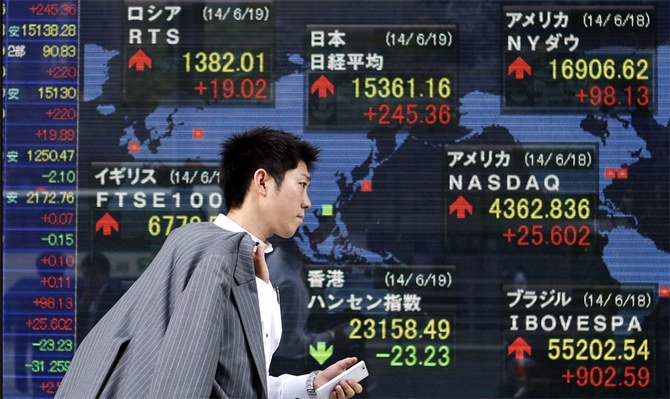
- ARAB NEWS
- 13 Jul 2025

Caline Malek Dubai
A recent YouGov poll on Arabs’ perception of Japan on a wide range of topics provides a snapshot of how Saudis view the country in the economic context.
The survey found that 56 percent of Saudis know that Japan is one of the top five economies of the world, while 31 percent know that the country was in the top 10 globally.
With regard to energy, 42 percent of Saudi respondents said 40 percent of Japan’s oil imports are produced by the Gulf Cooperation Council (GCC), while 37 percent correctly said the figure was 85 percent.
Another 7 percent of Saudi respondents said all of Japan’s oil imports are produced by the GCC, while 13 percent said that the GCC does not produce any of Japan’s oil imports at all.
The YouGov study commissioned by Arab News interviewed 3,033 Arabic speakers, aged 16 or above residing across 18 countries in the region.
“These statistics show that Saudis are very interested in (Japan as an) economic partner, but sometimes overestimate the total economic power of Japan,” said Cyril Widdershoven, director of VEROCY, a Dutch consultancy advising on investments, energy and infrastructure risks and opportunities in the Arab world.
“When looking at the oil import outcome, there is a general Arab overestimation of their position. Yes, Japan — as Asia — is dependent on GCC oil and gas imports, but hydrocarbons are a global market, where other parties are able to enter fully.”
Despite Japan’s current dependence on Gulf exporters, Widdershoven said GCC gas is under pressure in Japan as supplies from Australia and others are growing rapidly, with producers willing to underbid to capture the market.
“For crude oil and petrochemical products, the position is still very strong, especially as long as GCC countries such as Saudi Arabia and the UAE are heavily investing in downstream in Asia, and in Japan, to lock in the market and clients,” he told Arab News.
As for Japanese-made products, 73 percent of Saudis ranked Japan as number one in terms of quality, followed by the US, South Korea and China.
“The fact that Japanese products are liked is normal,” Widdershoven said.
“The quality and price of Japanese products is high, so this no doubt plays a role. After years of being overwhelmed by low-cost and low-quality Chinese exports, Arab markets are more willing to take higher quality products, in which Japan leads, and the fact that US products are second is clearly based on price and political considerations.”
According to Albadr Al-Shateri, politics professor at The National Defense College in Abu Dhabi, regional views on Japan are generally positive when it comes to economics.
“The people of the region trust and value Japanese products, which explains the pervasive presence of Japanese cars, appliances and electronic goods in the streets and households of Saudi Arabia and the Arab Gulf countries,” he told Arab News.
“Japan is at a disadvantage when it comes to culture. Western and American culture — especially pop culture — seems to hold sway in Saudi Arabia and the rest of the Gulf countries.”
With $5.1 billion in GDP, the third-largest economy after the US and China and ahead of Germany — Europe’s economic powerhouse — Japan’s share of the world economy stands at 5.95 percent.
Al-Shateri said neither Saudi Arabia nor other countries can afford to ignore such an economic giant. “Saudi Arabia’s Vision 2030 requires a diversification of the economy away from oil,” he said.
“Today, oil contributes about 40 percent of Saudi GDP. Japan, which is at the cutting edge of technology, can assist in transforming the Kingdom into a knowledge-based economy.”
He said Japan was also well positioned to be a long-term economic partner of Saudi Arabia in terms of trade and investment.
“As per the 2030 Vision plan, the Saudis envision a complete overhaul of their economy, which includes financial schemes, foreign investment, infrastructure development, human capital development, national industrial development and logistics and the entertainment sector,” Al-Shateri said.“Japan can contribute to all these fields.”
Looking to the future, Widdershoven believes the strong economic relationship has great potential as there is mutual desire to link their destinies. “Japan is heavily linked to Saudi oil and gas, as well as mining, so that will continue,” he said.
“For the Kingdom, technology and infrastructure projects are of great interest, and Japan can — and will be — a major player here. For both, Riyadh will consider Japan to be a preferable partner.
“Japan is not a real geopolitical power player, so it is not asking the wrong questions or pushing Saudi Arabia to head down a certain road.”